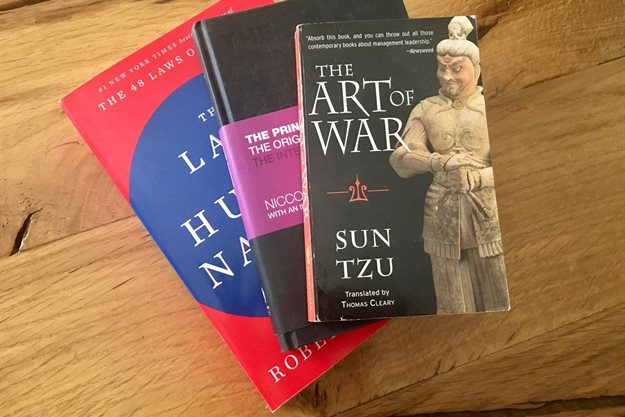#PulpNonFiction: How to make men and women desire you

Unlike many other authors in personal mastery genre, Greene intersperses his pop psychology with historical antipodes and case studies designed to back up his ideas. This, I thoroughly enjoyed. I am a huge fan of accumulating general knowledge, especially of the historic persuasion. One of these such historical interludes focused on Gabrielle Bonheur "Coco" Chanel and the highly calculated tactics she used to build her brand into a global empire.
As Green explains, Chanel mastered the art of making her art irresistibly desirable. The key to her success was understanding that us humans desire what other humans desire. And, more importantly, in order to be desirable, it is essential to first be desired. At first this sounds like a catch-22; if the prerequisite to desirability is to already be desirable, how can anyone (or any brand) then move from undesirable (or worse, unknown) to being desired? The answer, according to Greene’s analysis of Chanel is to employ a magic trick of sorts.
Step one: Be seen in all the right places
The illusion, like any magic trick, has two elements - what is revealed and what is concealed. What is revealed is designed to focus attention, to draw the eye to what the magician wants us to see. In Chanel’s case, she focused attention on creating the illusion of success and status by placing her unknown brand on fashionable bodies in fashionable areas. She dressed high-status socialites (for free), in her most eye-catching garments, in and around exclusive beach towns during the summer season, ensuring her distinctive look was impossible to miss while vacationing in the area. In this way her brand was instantly associated with the youngest, richest and most beautiful attributes of the romantic, sophisticated French Riviera, therefore creating instant desirability.
Yes, you will recognise this is the same now cynical and tired strategy brands attempt to emulate today, when paying beautiful, popular “influencers” to pedal their wares, however, all too many brands forget the second part of what makes the magic trick work - mystery.
Step two: Play hide and seek
Chanel was also a master of using mystery to enhance her desirability. As lover will acknowledge, absence makes the heart grow fonder. A little mystery can greatly enhance allure, while over exposure can diminish a once desired object’s esteem.
To create this mystery, and fuel the maddening desire that comes from wanting something that you cannot have, Chanel would frequently display or tease products that were not yet available for sale. For example, before she started selling her ladies swimsuits (a daring idea at the time) she designed and made one for herself and made sure all the right people saw her strutting around all the right beaches in it. She used the same strategy to launch her famous perfume. Months before the perfume was available for purchase, she sprayed the scent liberally in her store, but if any of her customers asked about the beguiling scent she would pretend she didn’t know what they were talking about. Once she was satisfied the scent was indeed getting noticed, she started slipping complimentary unbranded bottles of the perfume into her favourite customers shopping bags. Only when her customers were practically begging to buy coveted mystery scent did Chanel finally “relent” and allow them to do so!
Brand love
In other words, getting your customers to desire you brand is just like trying to get someone to fall in love with you. You want to be seen in all the right places with all the right people in all the right light, but you also need to remain just elusive and mysterious enough to instil just the right amount of jealously and frustration in your beloved. As in love, as in war - as in business - it’s all about playing the game.




































